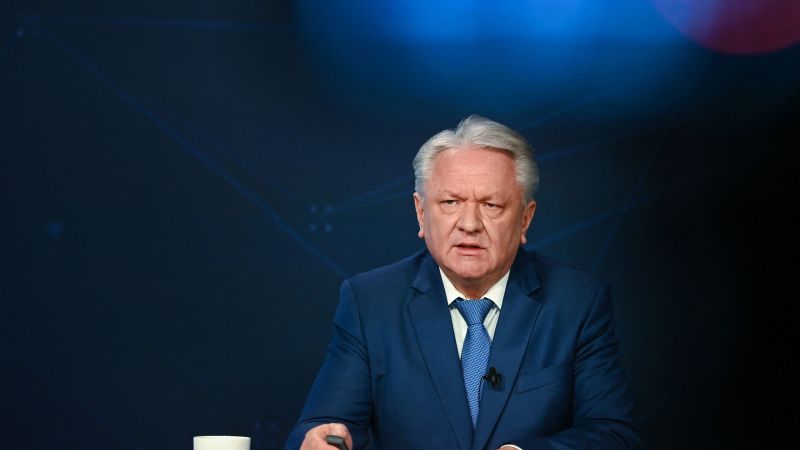US intelligence discovered earlier this year that the Russian government planned to assassinate the chief executive of a powerful German arms manufacturer that has been producing artillery shells and military vehicles for Ukraine, according to five US and western officials familiar with the episode.
The plot was one of a series of Russian plans to assassinate defense industry executives across Europe who were supporting Ukraine’s war effort, these sources said. The plan to kill Armin Papperger, a white-haired goliath who has led the German manufacturing charge in support of Kyiv, was the most mature.
When the Americans learned of the effort, they informed Germany, whose security services were then able to protect Papperger and foil the plot. A high-level German government official confirmed that Berlin was warned about the plot by the US.
For more than six months, Russia has been carrying out a sabotage campaign across Europe, largely by proxy. It has recruited local amateurs for everything from arson attacks on warehouses linked to arms for Ukraine to petty acts of vandalism — all designed to stymie the flow of weapons from the West to Ukraine and blunt public support for Kyiv.
But the intelligence suggesting that Russia was willing to assassinate private citizens underlined to Western officials just how far Moscow was willing to go in a parallel shadow war it is waging across the west.



Virtually any escalation between Russia and the West is going to be disadvantageous to Russia.
I’m seriously surprised that the Russian government is doing this (not to mention the earlier likely attempted hits on that Bulgarian arms dealer, Emilian Gebrev).
First, if you’re dealing in arms, the fact that you might be in proximity to conflict is not new. You can’t just back off whenever threatened. That comes with the job. So it’s probably not going to deter the arms company.
Second, if someone is exporting arms, it’s probably (and in this case, definitely) a matter of national policy. That is, the government is driving the policy, not the CEO. So you’re probably not killing the people who have it in for you.
Third, if you’re a member of the Russian government, you are very likely reasonably personally safe. We can’t (easily) stop Russian assassins (though it looks like we did in this case). But the same is also true in reverse. Russia’s border is an imaginary line on the map. Russia only has the ability to provide protection to people in its territory if other countries agree not to cross that line. One of the few ways that you can personally probably put yourself at risk is by doing hits on people in other countries, because the ability to provide protection in one’s territory relies on reciprocity.
Fourth, while I don’t know the specifics of this German assassination attempt, and I don’t know if the same was true here, the Bulgarian one was apparently covert, the idea being that the death wouldn’t be attributed to Russia. That seems strange to me. If Russia’s goal is to deter, then killing someone secretly won’t accomplish anything. Other people must know it was them, and be sufficiently afraid of a repeat to be deterred. Otherwise, how have you gained from your assassination? Are you going to kill the head of every arms dealer in the world over and over, trying to reroll the dice until you wind up with someone who just has some unrelated aversion to doing arms deals with Ukraine?
It just seems to me like there’s a lot of potential downside and not much potential upside. But I guess the Kremlin’s got their own view on the matter.
To add a few points:
if you kill the CEO of a top arms manufacturer, that’s only going to increase support for arm exports
now even a death of natural causes or an accident is going to looks suspicious as hell, eventually increasing the support for exports